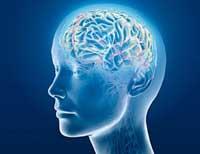Three simultaneous actions? You want and you can't

We can drive and talk at the same time, but at that time we will not be able to manipulate the GPS. We also have the ability to talk on the phone when we are cooking, but not to read the newspaper at the time. All this has its explanation: the brain cannot concentrate properly on all tasks.
With the aim of knowing what happens in our brain in this type of situation, researchers from the National Institute of Medical Research and Health of Paris have carried out an exhaustive research, the results of which have been recently communicated by the journal Science. They have explained that we can understand this inability as a “manufacturing defect” of their own and difficult to correct.
To reach this conclusion, the team of researchers has observed the brain activity of 32 volunteers with good health through MRI. They were asked to do an exercise related to word creation and scientists focused on the cerebral cortex.

When the volunteers did only one action, they saw that the frontal lobe of the brain was responsible for this activity. Specifically, the areas of the two cerebral hemispheres were concentrated on the task to achieve the goal well. However, by performing two simultaneous tasks, the lobes divided the tasks and associated each brain hemisphere with one of them. In the people on the right, the left hemisphere was related to the main and the right to the second.
However, the study found that this “division” of the brain is not total. Precisely because a specific area is pending to coordinate the distribution of tasks to be performed.
The more opportunities, the more lost
To go beyond research, volunteers had to conduct a third simultaneous activity. And none of the sixteen people could fulfill all three tasks perfectly. What happened? They had to suspend one of the two initial actions in order to concentrate on that third.

This has clarified, therefore, that the frontal function of the human brain is limited to two goals at the same time. And so we can understand why we “block” when, for example, we have to choose only one of the ten chocolates offered at the supermarket.
Previous studies showed that humans are able to perform two simultaneous actions, and that the “responsible” for that ability is also the cerebral cortex, which was known among neuroscientists. However, most agree to highlight the limits of this ability. That is, we cannot do three things at once. And if you also want to achieve real success, it will always be better to devote yourself to a task than to focus on both.
Another study recently published by the University of Utah (USA) reveals that only 2.5% of the population is actually able to perform several activities successfully at the same time. For example, only one in 40 people can be “superperson”, that is, a person capable of speaking on the phone when driving and doing both perfectly.
Published in Ortzadar
Buletina
Bidali zure helbide elektronikoa eta jaso asteroko buletina zure sarrera-ontzian











